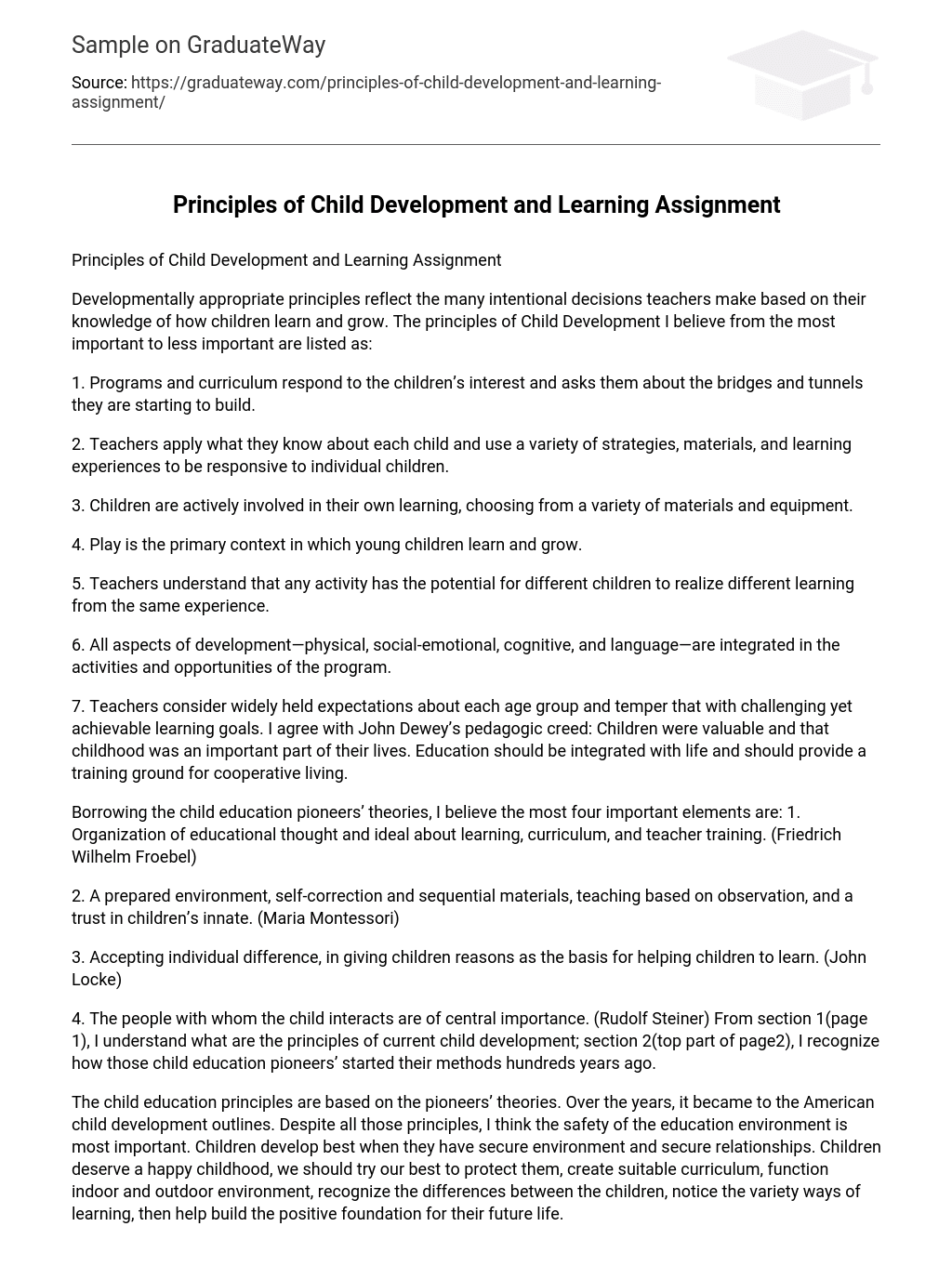The principles of Child Development, listed from most to least important in my opinion, reflect the deliberate choices teachers make based on their understanding of how children learn and develop.
The programs and curriculum are specifically created to captivate the children’s curiosity and encourage them to investigate the bridges and tunnels they are building.
Teachers utilize their knowledge of each individual child and employ diverse strategies, materials, and learning opportunities in order to cater to their specific needs.
Children have an active role in their own learning as they have the freedom to choose from different materials and equipment.
Play serves as the main context for young children to learn and grow.
Teachers understand that an assignment can lead to different educational accomplishments for each student.
The program includes different aspects of development, such as physical, social-emotional, cognitive, and language dimensions, in its activities and opportunities.
7. Teachers take into account prevalent expectations regarding each age group and balance them with challenging yet attainable educational objectives. I concur with John Dewey’s educational philosophy: Children possess inherent worth and childhood holds significance in their existence. Education should be seamlessly linked to life and serve as a platform for cultivating collaborative living.
Borrowing the theories of child education pioneers, I believe that the most important elements are as follows: 1. The organization of educational thought and ideals regarding learning, curriculum, and teacher training according to Friedrich Wilhelm Froebel.
According to Maria Montessori, a prepared environment, self-correction and sequential materials, teaching based on observation, and a trust in children’s innate are important factors.
John Locke believed that in order to help children learn, it is important to accept and appreciate their individual differences. He emphasized the importance of providing children with reasons as a foundation for their learning process.
4. According to Rudolf Steiner, the individuals who the child interacts with play a crucial role. In page 1, section 1, I gained insights into the principles of contemporary child development. Furthermore, in the top part of page 2, section 2, I acknowledge the beginnings of these educational methods by pioneers in child education from centuries ago.
The child education principles are based on the theories of the pioneers. Over time, these principles have evolved into the American child development outlines. However, I believe that ensuring a safe education environment is of utmost importance. It is in a secure environment with secure relationships that children can thrive and reach their full potential. It is our responsibility to ensure that children are given a happy childhood and we should strive to protect them by implementing appropriate curriculum, creating functional indoor and outdoor environments, acknowledging and embracing the differences among children, and recognizing the various ways in which they learn. By doing so, we can help lay a positive foundation for their future lives.





